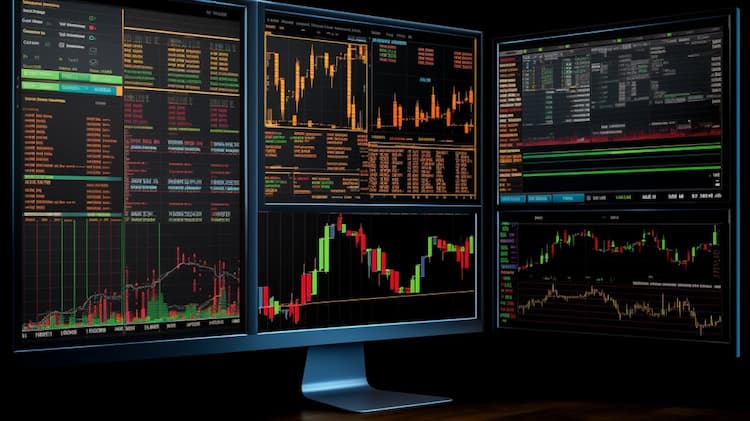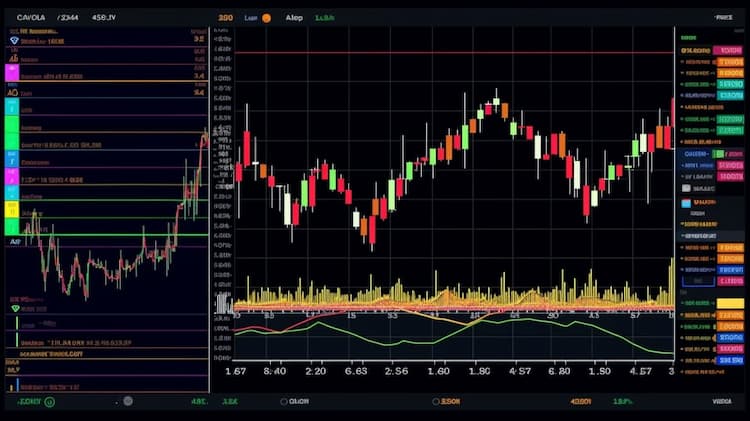
QQQ VS EWZ
Exchange-Traded Funds (ETFs) have become a cornerstone of modern investment portfolios, offering investors diverse exposure to various sectors and asset classes. In this article, we will conduct an in-depth comparison between two prominent ETFs: QQQ (Invesco QQQ Trust) and EWZ (iShares MSCI Brazil ETF). We will explore a range of aspects including ETF tickers, full names, issuers, sectors, top holdings, capitalization, investment strategy, tracking methods, and exposure.
QQQ & EWZ: Overview
QQQ and EWZ represent two distinct investment opportunities within the ETF universe. QQQ, often referred to as the "Qubes" or "Nasdaq 100," tracks the performance of the 100 largest non-financial companies listed on the Nasdaq Stock Market. On the other hand, EWZ provides exposure to Brazilian equities, capturing the performance of companies listed on the MSCI Brazil Index. The unique focus of each ETF influences their risk and return profiles, a topic we will delve into further in the subsequent sections.
QQQ & EWZ: Sectors and Top Holdings
QQQ predominantly concentrates on the technology sector, with companies like Apple, Microsoft, Amazon, and Alphabet (Google) among its top holdings. This makes QQQ a favored choice for investors seeking exposure to the growth potential of leading tech giants. Conversely, EWZ provides a gateway to Brazilian sectors such as financials, materials, and energy. Understanding the sectors and top holdings aids investors in aligning their investment objectives with the ETF that resonates most with their strategy.
 QQQ overlap QQQ VS EWZ
QQQ overlap QQQ VS EWZ
QQQ & EWZ: Capitalization and Investment Strategy
With its emphasis on technology behemoths, QQQ boasts a substantial asset under management (AUM) and reflects investors' interest in the tech sector's growth. On the other hand, EWZ's strategy is centered on capturing the performance of Brazilian stocks, making it an option for those betting on the Brazilian economy's ups and downs. The varying capitalization and investment strategies of QQQ and EWZ create unique risk-return dynamics that investors must consider based on their risk tolerance and market outlook.
QQQ & EWZ: Tracking Methods and Exposure
QQQ aims to mirror the performance of the Nasdaq 100 Index by holding the stocks within the index. This makes it a passive investment vehicle, tracking the index's ups and downs without active management. In contrast, EWZ actively seeks to replicate the MSCI Brazil Index's performance, which means it adjusts its holdings to match the index's composition. This active approach potentially introduces an element of outperformance but also entails a higher degree of management.
Conclusion
QQQ and EWZ are representative of the diverse investment opportunities ETFs offer. While QQQ taps into the technology prowess of leading Nasdaq-listed companies, EWZ provides exposure to the Brazilian market's potential. As investors seek insights into holdings, correlations, overlaps, and other vital aspects, ETF Insider emerges as the ultimate tool. Through its user-friendly app, it empowers investors with comprehensive details about these financial instruments and more.
Disclaimer: This article does not provide any investment advisory services.
Sources:
https://www.bloomberg.com/ EWZ ETF issuer
https://www.bloomberg.com/quote/EWZ:US EWZ ETF official page
QQQ quote and analysis
Discover the top holdings, correlations, and overlaps of ETFs using our visualization tool.
Our app allows you to build and track your portfolio.
To learn more about the QQQ Invesco QQQ Trust, access our dedicated page now.
FAQ
Why is QQQ better than EWZ?
QQQ may be considered better than EWZ for some investors due to its specific focus, offering diversification.
Does EWZ beat QQQ?
EWZ's performance relative to QQQ will vary over time, depending on market conditions.
Should I invest in QQQ or EWZ?
The choice between QQQ and EWZ should align with your investment goals, risk tolerance, and desired exposure.
Are QQQ and EWZ good investments?
Both QQQ and EWZ can be suitable investments depending on individual investment strategies, goals, and risk profiles.
What is the correlation between QQQ and EWZ?
The correlation between QQQ and EWZ can vary over time, reflecting differences in performance.













